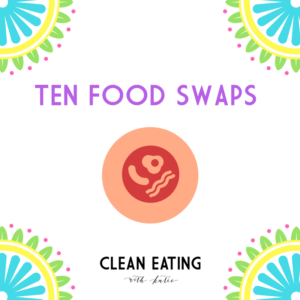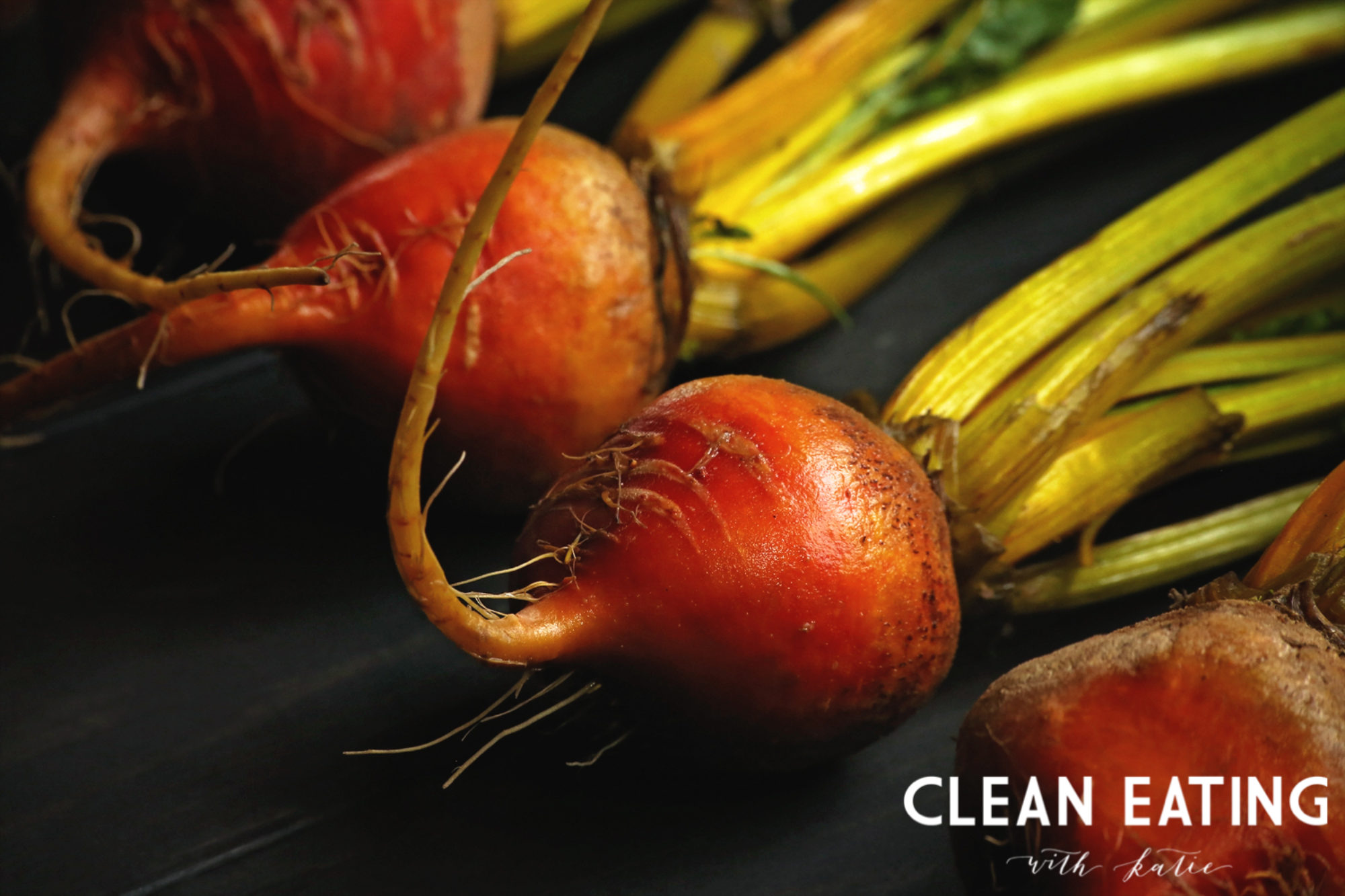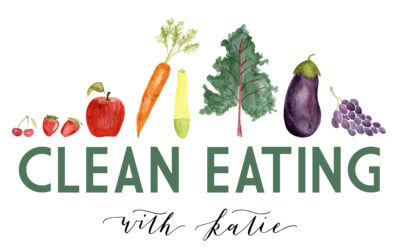As I read more, listen to my lectures, and talk to friends and clients, I have come to the belief that there are about 10 recommendations that I often suggest to people. These same 10 suggestions apply for most people and for most health concerns. If you were trying to make healthier choices in your diet, this is a basic list that can be your jumping off point. Here are my recommendations for 10 things to add to or replace in your diet. But not until Friday. 😉 After all, tomorrow is Thanksgiving and life is for living and enjoying. You have to live your life and holiday foods most definitely qualify.

| Eat This 🙂 | Instead of That 🙁 |
| Grass-fed Butter
Butter is great to cook with because unlike most vegetable oils, it does not oxidize at low temperatures. It reduces inflammation and is rich in conjugated-linoleic acid and vitamins A, D & K2. |
Margarine
Margarine is made of crop oils that are partially hydrogenated, turning them from liquid into a solid. This turns the fats into trans fats, substances that our bodies have trouble recognizing and processing. |
| Coconut Oil
Coconut oil is a great source of medium chain triglycerides, which are antiviral and antibacterial. These medium chain fatty acids are easily absorbed by the body and protect against heart disease and promote weight loss. It is a great high heat cooking oil, as it doesn’t oxidize at low temperatures. |
All other Vegetable Oils
Vegetable oils oxidize at lower temperatures, meaning they become damaged and inflammatory when used in cooking. They are also highly processed using high heat, so they are likely damaged even before used in cooking. When exposed to light (through the clear bottles the are packaged in) further oxidation occurs. |
| Honey, Maple Syrup, Date Sugar, or Coconut Sugar
Coconut sugar is a low-glycemic sweetener. Both coconut sugar and date sugar are not as heavily processed as other sugars. Raw honey and maple syrup are not processed either. These all make great sugar alternatives when used in moderation. |
Sugar, Agave, Artificial Sweeteners
High blood sugar is a problem with many health concerns. Artificial sweeteners are linked to declines in kidney function, brain tumors, autoimmune conditions, and are potential neurotoxins. Agave, while a low-glycemic sweetener, is heavily processed, making it similar to high-fructose corn syrup. |
| Raw Nuts and Seeds
Seeds contain all the nutrients for that the plant needs to start life, making them nutrient dense. They are often rich in omega-3s, great sources of protein, fats, and vitamins and minerals. Nuts and seeds have a “season” like all other produce, and can go bad like all other produce, so they should be eaten raw. |
Roasted Nuts and Seeds
Similarly to crop oils, nuts and seeds oxidize when exposed to high heats, therefore roasted nuts and seeds are likely to cause oxidative damage and inflammation in the body. Nuts and seeds are also often roasted to preserve them, but also to hide the rancidity of the nuts or seeds. |
| Sparkling Water
For a treat, sparkling water is a nice alternative to regular filtered water. Adding fruit, a squeeze of lime juice, or some grapefruit essential oil to the sparkling water can also help to break up the repetition. |
Soda
Sugary drinks actually cause the taste buds to crave more sugar. To process sugars, vitamins and minerals must be taken from the tissues, therefore repeated exposure can lead to nutrient deficiencies. |
| Sea Salt
The best salt choices are not white – either grey, pink, or other colors. These salts contain trace minerals that we need and can be hard to find. |
Iodized Salt
Iodized salt often has added sugar and aluminum. It is also processed to remove all other trace minerals. |
| Spaghetti Squash, Zoodles, or Kelp Noodles
These are nutrient dense substitutions for pasta and are low in calories. Zoodles are zucchini that have been spiralized into spaghetti-like noodles. |
Pasta
Pasta is a refined food that is rich in calories, but low in nutrients. While it may be tasty, it’s a modern convenience food that isn’t needed. |
| Tea
Herbals teas are a great alternative to coffee. Teas do not create the stress response that coffee does and are often filled with nutritional benefits. |
Coffee
Coffee stimulates the adrenal glands to produce more cortisol and adrenaline, keeping the adrenals on overload. It also raises blood sugar and depletes vitamins and minerals. |
| Full-fat Dairy
Dairy is a good source of protein, healthy fats, calcium and fat-soluble vitamins A, D, and K2. |
Nonfat Dairy
When you remove the fat from dairy, you are left with a lot of dairy sugar, lactose. Nature would not package something “bad” with something good just for us to wait thousands of years for scientists to learn how to separate the fat out of dairy. |
| Pasture-raised Eggs
Eggs do contain cholesterol and fat, and the reality is that we need both. Both are in every cell of the human body. Cholesterol supports brain function, serotonin production, and it acts as an antioxidant. Your heart gets 60% of its energy from fat and you brain is mostly fat. |
Egg Whites/ Egg Substitutes/ Non-Pasture-raised Eggs
Nature did not package something good for us with something bad for us just to wait thousands of years for humans to invent egg-beaters. You are what you eat, so if you’re eating poorly raised eggs, you are not getting the nutrients that you need. |
Health & Hugs <3,
Katie
References:
Axe, J. (2015). Step away from the diet coke. Retrieved from http://draxe.com/step-away-from-the-diet-coke/
Bauman, E. (2014) Foundations of Nutrition. Penngrove, CA: Bauman Press.
Bowden, J. & Sinatra, S. (2012). The Great Cholesterol Myth. Beverly, MA: Fair Winds Press.
Knoff, L (2014) Personal Communication.
Murray, M., Pizzorno, J., & Pizzorno, L. (2005). The Encyclopedia of Healing Foods. New York, NY: Atria Books.
Wolfe, L. (2013). Eat the Yolks. Las Vegas, NV: Victory Belt Publishing.


